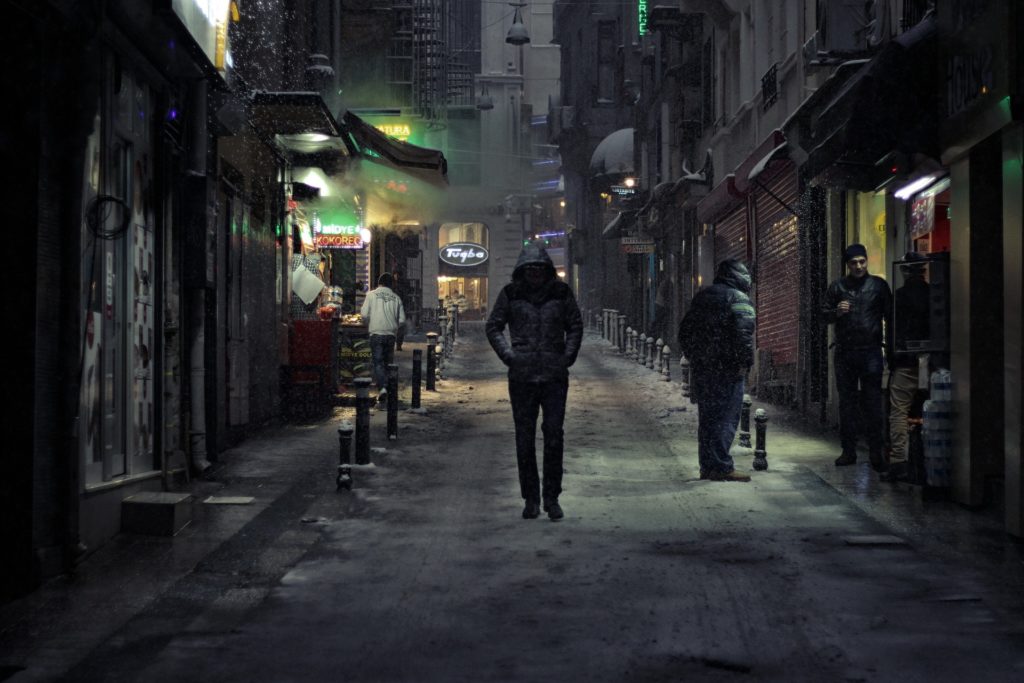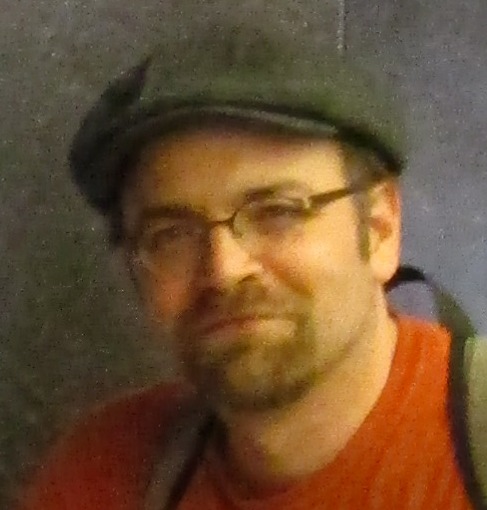Third Factor readers are generally interested in undertakings: they want be among peers who recognize what they offer and are willing to collaborate so that their combined effort can achieve a startling and meaningful end. Though many of us struggle to find the people needed to forge these relationships, they remain centered in our view. Of course this is a reasonable thing to desire, and we should encourage each other in pursuing it.
One issue is that the world is full of people who are either too young or too old to partner with us in these pursuits. What many do not realize, however, is that these people are still critical to our development.
It is perhaps obvious that we can and should endeavor to have positive relations with different individuals from all walks of life. If we are to truly gain all there is to be gained from them, however, we need to recognize how these relationships tend to differ from peer relationships. The way each party can expect to benefit and grow from them therefore will also diverge.
Now that I am forty-one, I have started to forge connections to people in the generation that follows my own. They are now adults and have reason. I have experienced a role reversal from when I was a young person, looking up. Such connections can challenge us—particularly, I have discovered, those of us getting used to the role of being the senior in an inter-generational friendship—but they are challenges that we must face if we wish to grow and remain relevant.
Plus, this is Third Factor. Growth and relevance are themes here, right?
*
I was thrown into close contact with the older generation directly out of college, when I moved to China to teach English at a local college. As I’ve mentioned previously, Yancheng (盐城) was a rather small city by Chinese standards; it had a population of only 800,000 in the city center, with a couple million in the surrounding county, and there were never more than twenty-five native English speakers in town at any one time.
What I’ve not yet revealed about my time there is the fact that only four of us were under the age of forty. So, instead of spending a lot of time with people of my age group, I associated very closely with individuals who were my seniors by decades, more than old enough to be my parents. They became my friends. Many were retirees who had a lived full lives abroad in other countries, typically Australia or New Zealand, and were looking for something low-stress to do with their retirement that wouldn’t eat into their savings. Teaching English in Yancheng came with school-provided housing, so it fit the bill.

Two of these elder friends in particular stood out. They continued my education, in a way: Carl Hill and Bob the Philosopher.
Bob (whose last name I can’t remember) was an Australian with a checkered past who’d been born in England, divorced in New Zealand, gotten his head smashed in some industrial mining equipment on a copper dig in Indonesia, and claimed to be doing a PhD in theoretical linguistics with the University of New South Wales. He’d come to Yancheng to see what people trying to learn English without access to an immersive environment looked like, and he smoked more than anyone I’d ever met. The thing that was good about him was that he was a free-ranging mind, and he talked to me about language in a broad, abstract way that encouraged not just learning but thinking. I remember that he used to lecture me on the insights of Polányi and how those insights touched on deep truths in the workings of human thought.
Carl, however, was very different. He’d grown up poor in (I think) Tennessee, but was one of those kids who decides early that he’s going to make it, that he’s going to be a millionaire, and just doesn’t let go. He told me at one point that he’d saved every paycheck he’d got until he was able to buy a Brooks Brothers suit, and then he’d spent it all on that, because that was what success demanded. At some point he’d gotten into college and decided to learn chemistry because he thought that was where the money was. And then, when China opened up, he went there. By the time I met him in 2004, he’d been in the country for about eleven years and owned five apartments in various cities, scattered across the eastern seaboard.

I don’t know why he looked after me, but he did. He was an executive. I remember the force and directedness of his personality, which I had not experienced before; it was the first time I’d seen someone bend their surroundings to their will. I remember the one time he managed to convince a diva who sang the blues in Shanghai to come up to Yancheng for a weekend, just to see the place. This was a Chinese town that was so crappy it didn’t have a McDonald’s and the chief local delicacy was an obscure species of crab that was drowned in hard liquor and then eaten raw, which people from the more refined parts of the country found utterly barbarous. But Carl managed to magic up a diva anyway, and she stayed there with us for three days before we took her back to the big city, where I shakily interpreted for her in the lobby of the Shanghai Ritz.
Both Carl and Bob had very deep influences on me: Carl showed me the reality of personal power and the respect we receive for making our will known, while Bob taught me that the intellect can exist outside the ivory tower. My memories of the other young people in town are nowhere near as significant. We did things like throw up in the back seats of cabs and eat mystery meat by the side of the road at two in the morning. I injured my ankle jumping off a nine-foot speaker in a bar once, but I can’t remember who I was with at the time. At this point, all those memories have sort of run together to create a suggestive field of experience with no real features of relief within it. They were good people, but they did not become a part of my later life.
*
I am older now, and I have had the experience of being the elder in an inter-generational relationship. It is strikingly different on this side. Being around people in their middle age when I was in my early 20s was passively engaging and nourishing if I bothered to pay attention. On that end of the relationship, it was pretty simple.
Not so once the roles are reversed. Developing a relationship with a young person is like entering into a complex, semi-contractual arrangement with an unknown party that might be a time bomb, which you are obliged to try to disarm regularly lest it get bored, explode, melt, and start making idiotic life choices.
Newly-minted adults have weird ideas about the way the world works. They tend to do the emotional equivalent of picking random objects up off the street and putting them in their mouths, unwashed; as a man of experience, this can be painful to witness.
Newly-minted adults have weird ideas about the way the world works. They tend to do the emotional equivalent of picking random objects up off the street and putting them in their mouths, unwashed; as a man of experience, this can be painful to witness. And yet, there are still three great reasons why, as the senior member of an inter-generational friendship, the arrangement remains desirable:
- I know I was like this when I was younger, and facing it again encourages the development of a more complicated sense of subject-object in oneself, since it causes me to remember The Youthful Maxwell and to stitch him into my thinking about myself;
- In a very real, meaningful way, young people are more likely to care about the world with an interest that is difficult to encounter in mature adults. They also tend to think that they can change it, which is even rarer;
- Young people tend to want guidance, and it is possible to fail at providing it. This means that interactions with them can have higher stakes and matter more than conversations with other people in early middle age, who are often more set in their ways and do not welcome counsel.
I think, in particular, this kind of relationship is important for people who have crawled their way up Dabrowski’s ladder. The reason why is kind of sad: our cohort often fails us. As we age and advance in life, many people who were originally close companions or collaborative partners lose the time or motivation to continue, falling slowly away. They become self-destructive, domestic, or both.

And this is normal. To fight it head on is a losing battle.
To say that it is normal, however, is not to say that it must be this way.
I have realized that one decent definition of a Golden Age is an era in which the sensitive mind is not lonely. Our age is certainly not golden, so we cannot reliably count upon our peers for the sort of support and nourishment that sustains us through the voyage of our lives.
This is where the youth step in. Almost or recently graduated from school, they are not yet aware of the slate-gray sadness of typical adult interaction. Sometimes they still want to learn, and sometimes we can share meaningful things with them. This sort of sharing feels different than sharing with peers; it’s more like taking something fragile that you’ve had for a while and passing it onto the next person who will have it in their care, rather than working with another practitioner to create a sister piece.
It is, however, still good. I would not say that it’s less important.
*
In the end, this is a piece written partly in support of the promise of the rising generation, but also partly as a guide for the older set who might be feeling a little lost on their own, in this place called Modernity. Hope is a powerful, sustaining emotion. Without access to its positive reservoir, our ability to fuel that thing that drives us forward through this great enterprise of being—and perhaps especially toward the higher levels described by Dabrowski—can dwindle. I did not feel this was the case when I was young myself, but now that I am forty-one, it seems much more important. And I have not found a better source of hope in life than contact with and involvement in the live of the young.
Header image courtesy ALPA PROD / Shutterstock.




